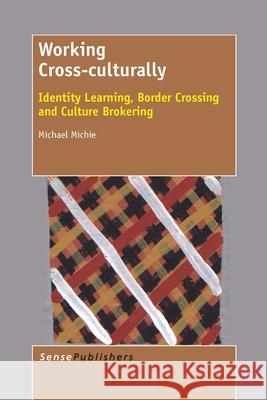Working Cross-Culturally » książka
Working Cross-Culturally
ISBN-13: 9789462096790 / Angielski / Twarda / 2014 / 170 str.
Working Cross-Culturally
ISBN-13: 9789462096790 / Angielski / Twarda / 2014 / 170 str.
(netto: 420,89 VAT: 5%)
Najniższa cena z 30 dni: 423,64
ok. 22 dni roboczych.
Darmowa dostawa!
Why do some westerners seem to have a better relationship with Indigenous people than others? Using a narrative research methodology, the author explores the experience and wisdom of eight such participants to come to an understanding of why. He uses a broad sweep of ideas from anthropology, ethnohistory, multicultural education and cultural studies of science education, together with a model of identity learning.From anthropology the author traces marginal man and middleman to modern equivalents, border crosser (and hybrid) and culture broker. He uses a theory of identity learning to look at the response to culture shock as a passage into another culture (or not), a theory which includes both cognitive and affective or emotional components.The participants narratives are examined for early influences which brought them into contact with the indigenous peoples in the countries where they live. Considering that they experienced border crossings when working cross-culturally, they are located within a spectrum of border crossing positions. The participants ideas about being culture brokers are explored, along with their experiences in that role. These are organised into five areas leading to a deeper understanding the role of the culture broker. Finally, the participants consider how teachers in particular should behave in cross-cultural settings and the types of experiences they needed to become effective teachers and border crossers.











